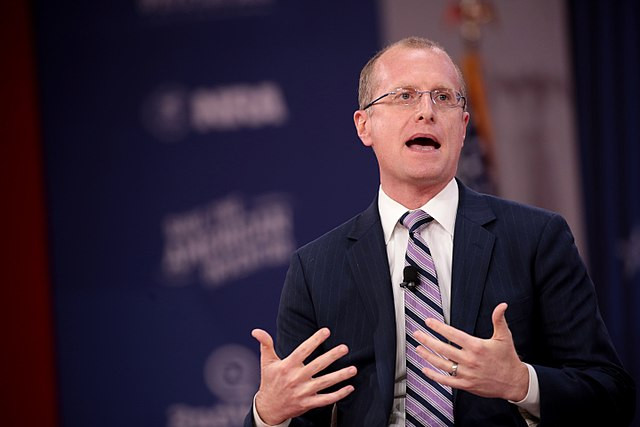President-elect Donald Trump announced on Sunday that Brendan Carr, the senior Republican member of the Federal Communications Commission (FCC), will be appointed as the agency's new chairman. Carr, a prominent critic of regulatory policies that emphasize Diversity, Equity, and Inclusion (DEI), signaled that the FCC's focus on DEI initiatives will come to an end next year.
"The FCC's most recent budget request said that promoting DEI was the agency's second-highest strategic goal. Starting next year, the FCC will end its promotion of DEI," Carr posted on X, formerly known as Twitter, on Monday morning.
Carr's remarks highlighted a significant shift in the FCC's strategic direction, marking a departure from the previous administration's priorities. In its Fiscal Year 2025 budget request, the FCC outlined its intention to eliminate barriers that "perpetuate disadvantaged or underserved individuals and communities" and emphasized the importance of workforce diversity and equity in policymaking processes. However, Carr's approach suggests a redirection of focus, with Trump praising him as a "warrior for Free Speech" who will cut through regulatory red tape.
Trump's decision to nominate Carr underscores a broader effort to reshape the FCC's agenda. Carr, who has served on the commission since 2017 and was confirmed unanimously by the Senate three times, is set to prioritize issues like national security, economic prosperity, and accountability within the agency. In a statement, Trump said Carr "will end the regulatory onslaught that has been crippling America's Job Creators and Innovators, and ensure that the FCC delivers for rural America."
Carr expressed gratitude to Trump for the appointment, writing on X, "I am humbled and honored to serve as Chairman of the FCC. Now we get to work." While Carr did not offer immediate additional comments, his track record and policy proposals provide a clear indication of the direction he intends to take the agency.
As outlined in his chapter for the conservative Project 2025 playbook, Carr has been a strong advocate for reining in Big Tech and bolstering national security. He has argued for reforms to Section 230 of the Communications Decency Act, which grants social media platforms immunity for user-generated content and allows them to moderate objectionable material. Carr's proposal calls for restricting the scope of Section 230 protections to prevent internet companies from "censoring protected speech while maintaining their Section 230 protections."
Carr's focus on curbing Big Tech's influence extends to his stance on TikTok, which he has suggested banning if it fails to sever ties with its China-based parent company. This aligns with broader concerns about the platform's data privacy and national security implications-a topic on which Trump himself has held varying positions.
Carr's ascension to FCC chairman comes amid a politically charged climate. The FCC, composed of five commissioners with a cap of three from the same political party, is a bipartisan entity tasked with regulating radio, television, and cable communications. Carr's appointment represents a potential shift in regulatory philosophy, emphasizing a less interventionist role in areas such as DEI while doubling down on issues like free speech and Big Tech accountability.
Notably, Carr's announcement regarding the end of DEI initiatives drew a mixed response. In addition to posting a GIF captioned "When it comes to the FCC's promotion of DEI, I have just one thing to say: Afuera (get out)!" Carr made it clear that his leadership will prioritize other objectives, including expanding broadband access-a goal listed as the FCC's top priority in its budget request.
The FCC's DEI initiatives had aimed to foster inclusivity and eliminate systemic barriers in communications policies and programs. Critics of Carr's stance argue that this reversal could slow progress in addressing disparities, while supporters view it as a necessary recalibration of the agency's focus. Carr's critics contend that reducing the agency's emphasis on equity risks undermining gains in workforce diversity and consumer inclusivity.






